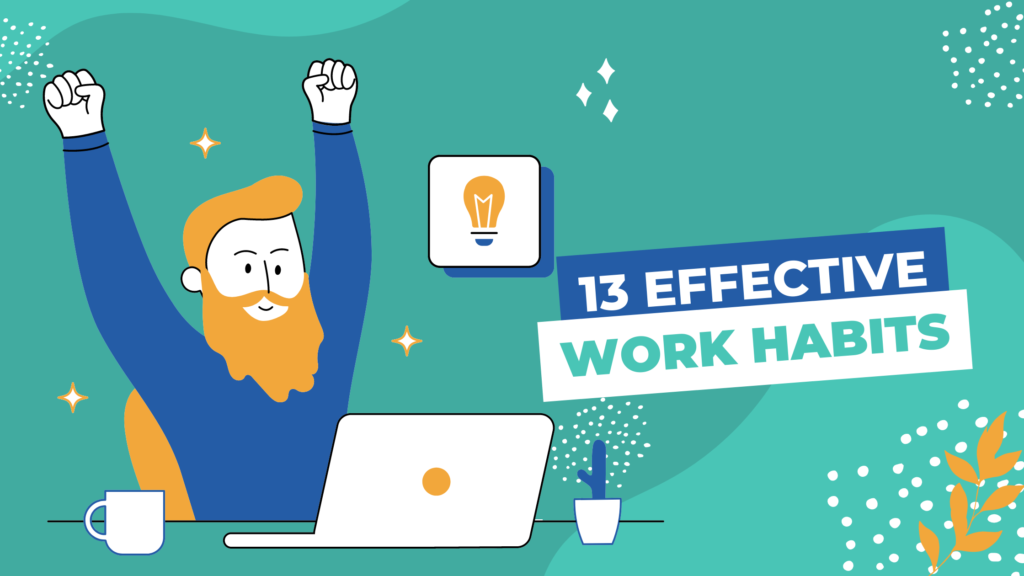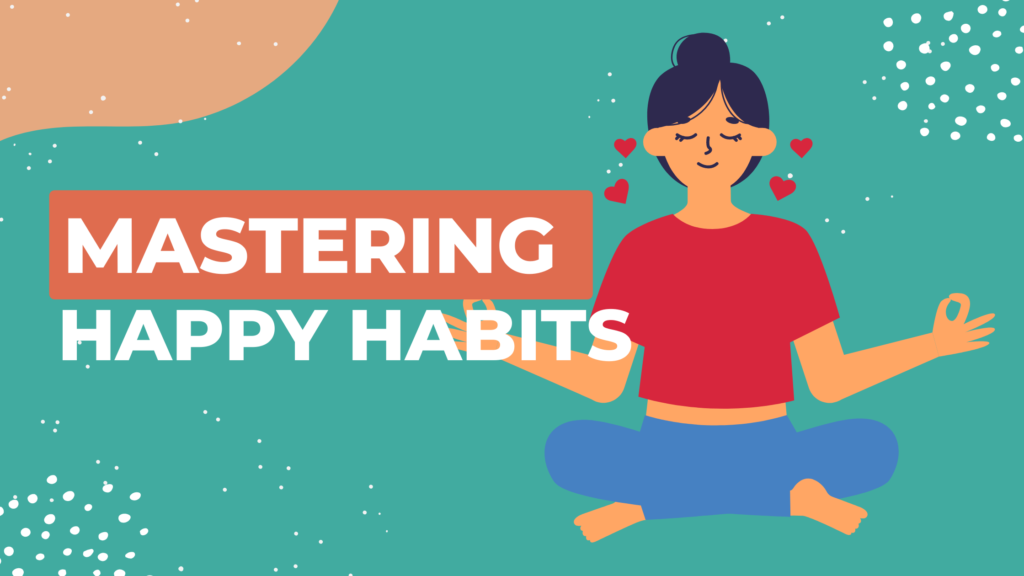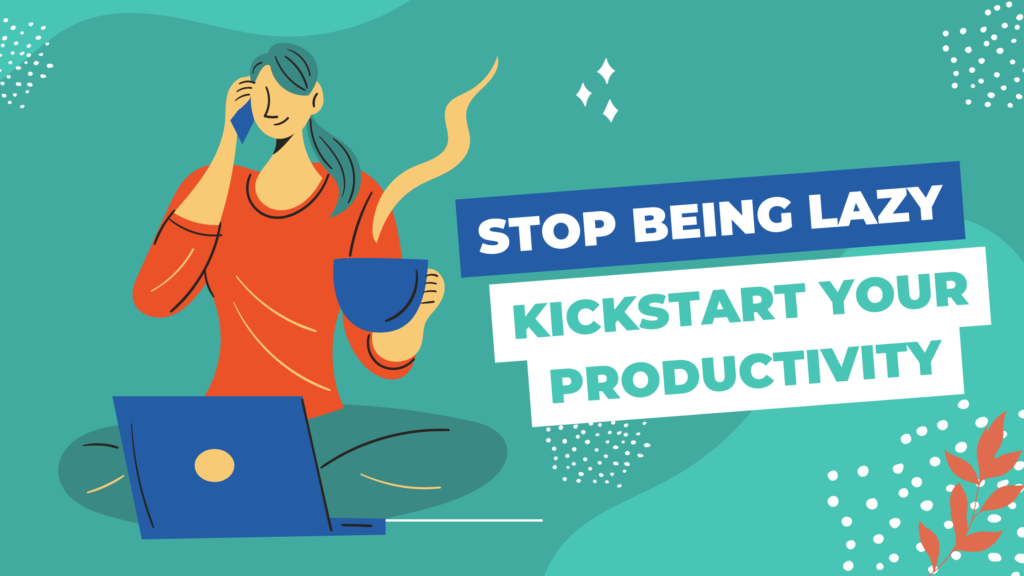Imagine having real-life superpowers that don’t involve flying or super strength. Good work habits are like your secret weapons against the onslaught of paperwork and endless tasks. If you’re stuck in a rut of hitting the snooze button and stumbling through your workday, picture a future where you’re the Clark Kent of productivity, conquering tasks effortlessly. Don’t let your current habits define you. With determination, you can cultivate powerful work habits that pave the way for your career success.
Let’s embark on this journey together and transform your work habits for the better.
What Exactly are Work Habits?
Work habits are the automatic behaviors that you engage in during your workday. These are the routine actions and patterns of thinking that become ingrained in your daily routine. For instance, think about your usual routine when you arrive at the office – checking emails and catching up with colleagues might be second nature. These habits help you save mental energy for more demanding tasks and actually make up a significant portion of your work hours.
However, it’s important to note that habits themselves aren’t inherently good or bad. They can either boost your performance or hinder it, depending on how they impact you and your work environment.
Why do Good Work Habits Matter?
Good work habits are behaviors that enhance your productivity and streamline your workflow. These habits not only speed up your tasks but also elevate the quality of your output. They are the backbone of a thriving work environment, affecting you, your coworkers, and the organization as a whole.
On the flip side, bad work habits can be detrimental, dragging down your performance and momentum. This is why nurturing positive habits and replacing negative ones is crucial. While developing new habits takes time and consistent effort (about 66 days on average), the payoff in increased productivity is immense.
“Excellence is a Habit”
In the words of Will Durant,
“We are what we repeatedly do. Excellence, then, is not an act, but a habit.”
It’s a mantra to live by.
Examples of Effective Work Habits
Regardless of where you are in your professional journey, there’s always room for improvement when it comes to work habits. Let’s explore some of the most impactful habits and practical tips to integrate them into your routine:
1. Punctuality: Showing Up on Time
Being punctual is more than a mere timekeeping exercise; it reflects your commitment, reliability, and respect for others’ time. Think of punctuality as a way of setting a positive tone for your workday. One practical strategy is adjusting your morning routine to allow for a seamless start. By waking up a bit earlier and preparing essentials the night before, you can eliminate the morning rush and ensure that you arrive on time. This practice showcases your dedication to your commitments, and it’s particularly crucial when working in an office or during remote work.
2. Meeting Deadlines
Meeting deadlines is a cornerstone of professional integrity. It’s not just about fulfilling obligations; it’s about ensuring that workflows continue smoothly for all involved parties. Mastering this habit requires honing your time management skills. Instead of procrastinating, tackle complex tasks methodically, breaking them down into manageable steps. Regularly communicate your project progress and workload to your supervisors, ensuring that deadlines are realistic. Begin each week by crafting a detailed to-do list to stay on top of upcoming deadlines and tasks.
3. Respect for Others’ Time
In a bustling work environment, everyone’s time is valuable. Practicing respect for others’ time involves being selective about when and how you engage colleagues. Prioritize meaningful discussions and collaboration, allowing for efficient interactions. This habit fosters a productive atmosphere and demonstrates your understanding of the demands on your colleagues’ schedules.
4. Clear Communication
Effective communication is a skill that transcends industries. It’s not about using complex jargon; it’s about conveying information directly and succinctly. When discussing intricate matters, opt for straightforward language to ensure clear comprehension. Establishing a rhythm of regular updates to your superiors about project progress reflects professionalism and accountability. Equally important is the art of active listening. By being an engaged listener, you demonstrate respect for others’ opinions and ideas.
5. Proactive Approach and Initiative
Taking a proactive stance in your work demonstrates a strong sense of responsibility and dedication. It involves identifying tasks that might otherwise go unnoticed and addressing them before they escalate. This habit showcases your commitment to excellence and problem-solving skills. Additionally, don’t limit yourself to the scope of your current role. Embrace opportunities for growth by upskilling through workshops, certifications, and career coaching. Take the initiative to seek out new projects and responsibilities, positioning yourself as a go-to team member.
6. Structuring Meetings with Agendas
Meetings are a necessary part of modern work culture, but they often suffer from inefficiency and a lack of direction. By incorporating the habit of creating clear agendas, you can transform meetings into focused, purposeful discussions. Clearly outline the topics to be covered and the goals to be achieved. This practice enables participants to prepare adequately and contributes to productive outcomes.
7. Balancing Work and Personal Time
Effective time management is the bedrock of work-life balance. It’s about optimizing your work hours to minimize wasted time and prevent burnout. Prioritize tasks based on their importance and urgency, avoid multitasking, and create a workspace free of distractions. Consider utilizing time-tracking tools to gain insights into your productivity patterns. This is especially advantageous for remote workers, as it aids in maintaining a healthy work-life equilibrium.
8. Problem-Solution Approach
Every organization faces challenges, but merely pointing out issues is insufficient. Embrace the habit of not just identifying problems but also proposing viable solutions. This showcases your problem-solving acumen and dedication to the team’s success. It’s an opportunity to position yourself as an asset rather than a bystander.
9. Staying Organized
The organization extends beyond physical clutter. Implement a comprehensive system for managing information, ensuring easy retrieval and sharing. Start small with practices like color-coding your calendar, taking structured notes, and creating task checklists. By maintaining an organized work environment, you streamline your operations and boost efficiency.
10. Continuous Learning
Lifelong learning is a gateway to professional growth. Committing to ongoing education keeps you adaptable and ahead of industry trends. This doesn’t require returning to formal education; you can access valuable knowledge through books, podcasts, expert videos, and relevant blogs. Dedicate a portion of your week to staying updated, and watch how your enhanced knowledge contributes to your career trajectory.
11. Self-Care and Health
Productivity thrives on good health. Incorporating self-care routines into your workday enhances your well-being and, in turn, your performance. Consider integrating morning workouts or brief yoga sessions to invigorate your body and mind. Prioritize balanced nutrition and allocate moments throughout the day to center yourself. Don’t underestimate the value of light-hearted moments during work; laughter and relaxation are essential to maintaining motivation and creativity.
12. Handling Criticism Gracefully
Receiving criticism with grace is a hallmark of emotional intelligence. View feedback as an avenue for growth rather than an attack. Approach it with a calm and open mindset, refraining from immediate reactions. Seek to understand the feedback fully and ask clarifying questions. Responding positively and constructively demonstrates your professionalism and commitment to improvement.
13. Asking Relevant Questions
Asking questions is a sign of curiosity and a desire for improvement. However, strike a balance between seeking clarification and becoming overly reliant on others. Save important questions for discussions and ensure they add value to the conversation. Avoid repetitive queries, and remember that thoughtful inquiries contribute to your professional development.
Ready to Practice Healthy Work Habits?
Incorporating these habits into your daily routine requires commitment and patience. Begin with one or two that resonate with your goals, and gradually introduce more. As these practices become second nature, you’ll notice a transformative impact on your professional journey. By crafting a framework of positive habits, you’re shaping a path to long-term success.




